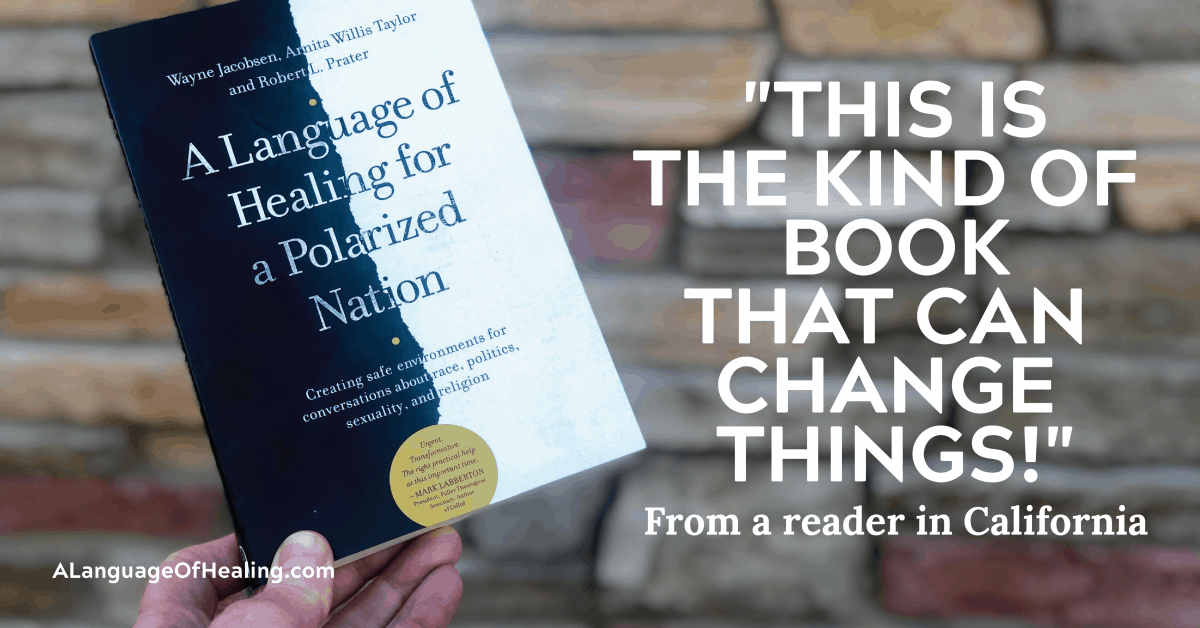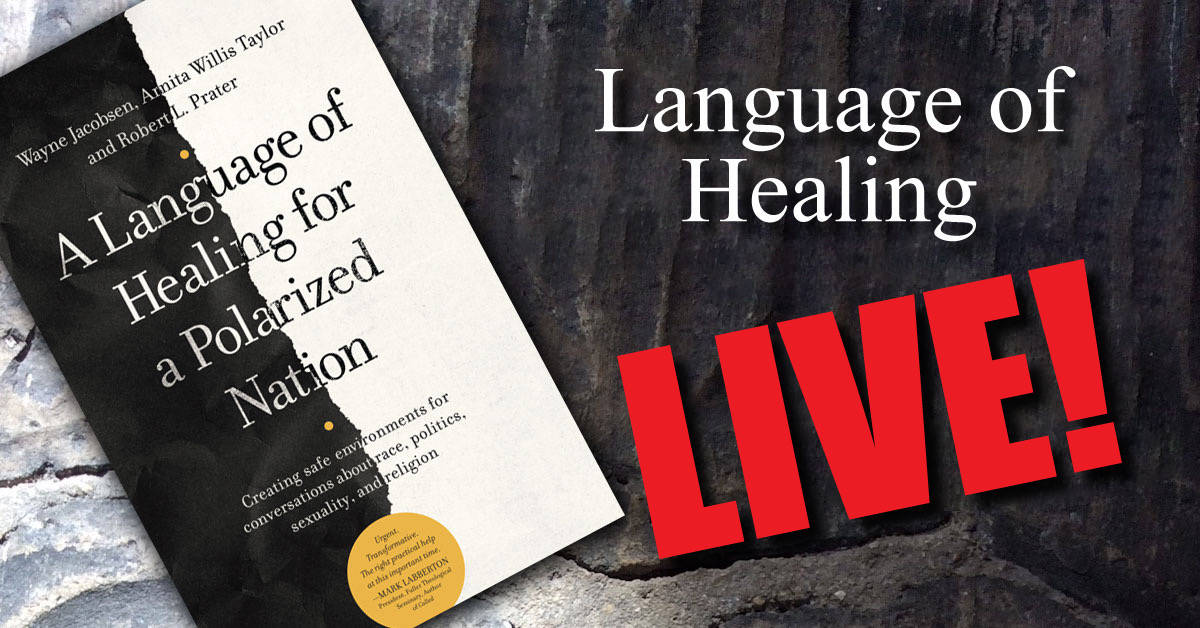My dad said he read the book, and he loved it, but he also added, “You’re going to have a tough time getting people to read this book.”
A few days later, I got this note from a friend in Washington, “(This is) one of the most important books I have seen in a long, long time—very close to the heart of God.”
A Language of Healing for a Polarized Nation has been quite an adventure. It has opened the door to conversations I never expected to have with families who are dealing with gender or sexual identity issues, communities polarized over a racial divide, and those that have the ear of some pretty influential people. I don’t know yet where this little book will end up, but the conversations I’ve enjoyed over the past few months have made it all worth it.
People’s responses to it have been amazing, as the quote in the picture above that coauthor Bob Prater heard from someone. Even those who have been suspicious of its message, thinking it is just the invitation to make nice, have become engaged with the conversation. “I’ve never even heard of this perspective before,” is something I hear often.
The language of healing is a robust conversation that can recognize our differences and still care about the perspectives of others. During my recent trip to Oklahoma, I got to share in a workshop with coauthor Arnita Taylor as we walked people through the ways to speak this language of healing that will allow us to live with conviction and generosity in the world.
I also met with two men who are influential in black churches throughout the US. They say one of their greatest needs is to help reconcile the polarity in their communities. These men were talking to me before they’d even read the book.
And, next year Tulsa, OK, will be dealing with the 100th anniversary of the Tulsa Race Massacre that occurred in 1921. It has been called “the single worst incident of racial violence in American history.” Some of the key players in helping the community deal with this horrific tragedy are reading the book now. It will be interesting to see where that goes.
The greatest joy, however, is hearing how it has changed the way people think and interact with people around them. I got this email earlier this week:
My husband and I finished listening to the audiobook this afternoon. We absolutely loved it. It took us quite a bit of time to get through the book because we would pause for conversation and provide our own examples. It was also meaningful to talk about our hopes and dreams as the material lends itself to living a transformed life in relationship with others. We find this very exciting. We felt as though we were right there, listening to conversations between the three of you. It was truly delightful!
When I was in Richmond a few weeks before, one of the families I visited asked a black pastor from a downtown church to join us. He told us how discouraged he had been that the white community would ever have any compassion for him. He said he couldn’t remember the last time a white man had invited him out to lunch, and here he was sitting with a group of us. He was really touched by the gesture and the things we shared from the book, even though he hadn’t read it yet. It restored his hope, he said.
Last week in Edmond, OK, I met a young man who had been apprehended by the police as he was walking to the store when he was eighteen years old. They thought he had just robbed another store in the area. When the police officer found out the young man he had in custody did not match the description, he angrily uncuffed him and shoved him in the gutter before driving off. Can you imagine what that might do to a young man?
We can do better. I hope this book at least gets people to reconsider how their biases and prejudices shape their unfair responses to people. Then we hope they will invite people into their lives that are different than them. It can’t hurt to reach across whatever aisle we have in our world to find out those on the other side are a lot more like you than they are different. They’ve just had some experiences that have led them to different conclusions than the one you have.
This book can change every engagement you have with other people in the world. Working on it, has for me. It was never meant to change Washington, DC or the news media. Remember, the world changes one conversation at a time.
Compassion and courage can change the world. Maybe not the whole world, but at least the world you live in.






